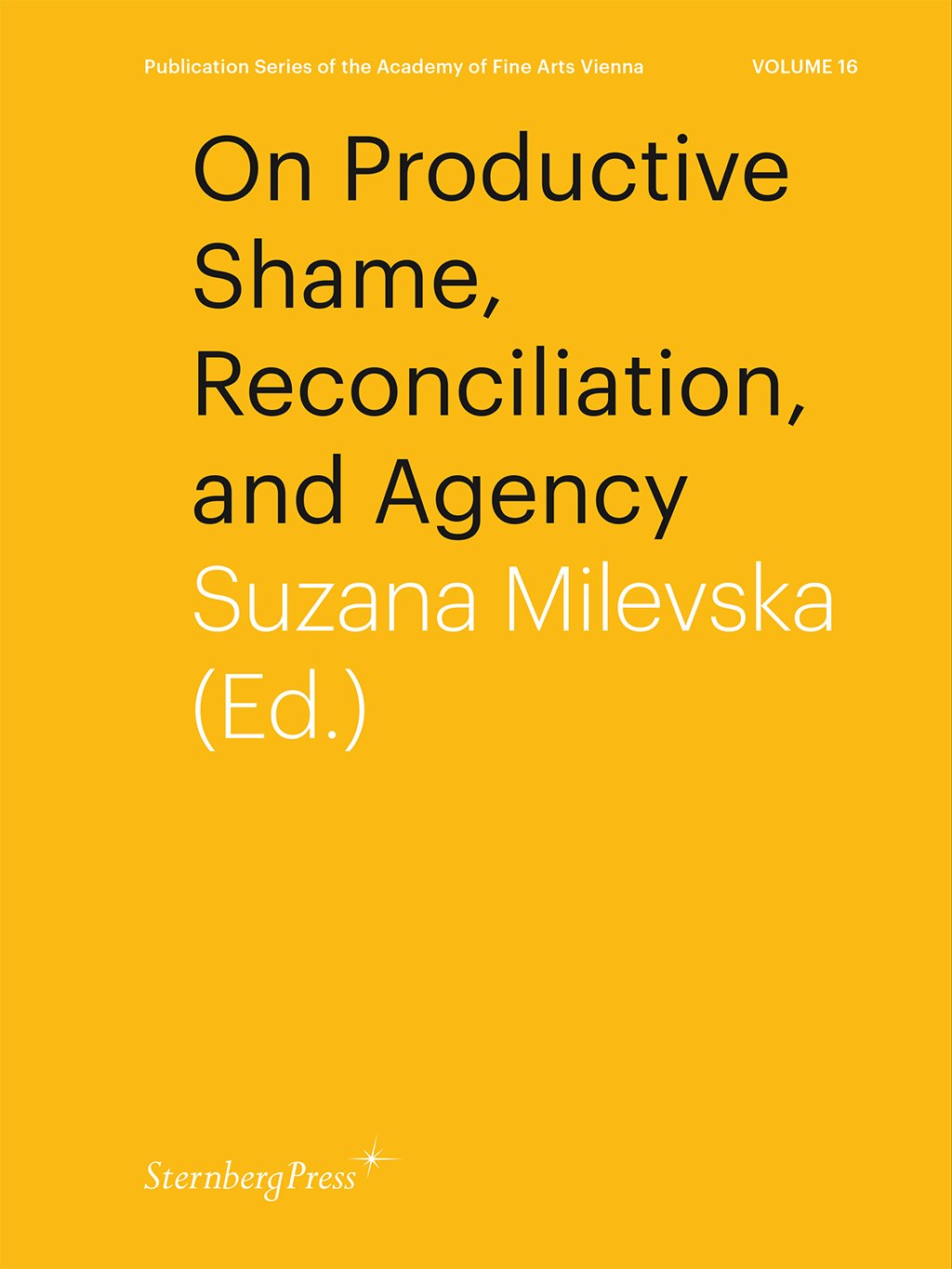On Productive Shame, Reconciliation, and Agency
Vol. 16
Suzana Milevska (ed.)
Berlin: Sternberg Press, 2016
Buying source
Authors: Tal Adler, Eva Blimlinger, Andrea B. Braidt, Jasmina Cibic, Das Kollektiv, Zsuzsi Flohr, Eduard Freudmann, Timea Junghaus, Jakob Krameritsch, Jean-Paul Martinon, Suzana Milevska, Helge Mooshammer, Peter Mörtenböck, Trevor Ngwane, Karin Schneider, Primrose Sonti, Gayatri Chakravorty Spivak, Working Group Four Faces of Omarska
On Productive Shame, Reconciliation, and Agency prompts a unique cross-disciplinary enquiry into the productive potentialities of the affect of shame. This book contests the ontological understanding of shame and the psychoanalytical interpretation of it based on personal traumatic experiences linked to lack, loss, memory repression, and absence. Rather, the book builds on complex issues (initially proposed by Paul Gilroy) that concern coming to terms with a grim colonial and imperial past: How can one deal with the personal and collective memories of “paralyzing guilt” after dreadful atrocities and genocides? How can such negative experiences be transformed into “productive shame” (not only for the perpetrators, but also for the victims and witnesses)?
The collection of essays, discussions, and interviews reflect on the intersection of the historicity, materiality, and structures behind culturally constructed race and racism, anti-Semitism, anti-Romaism, and queer shame across different disciplines, fields, and theories (for example, in philosophy, art and art history, visual culture, architecture, curating, postcolonial history, gender and queer studies). Various case studies and artistic projects employing collaborative and participatory research methods are analyzed practices that empower the process of turning shame into productive agency. The ensuing role of productive shame is to prevent the recurrence of the institutional structures, patterns, and events that are responsible and constructive of racism, and has been contextualized in recent debates on political responsibility and reconciliation in Europe and Africa.
